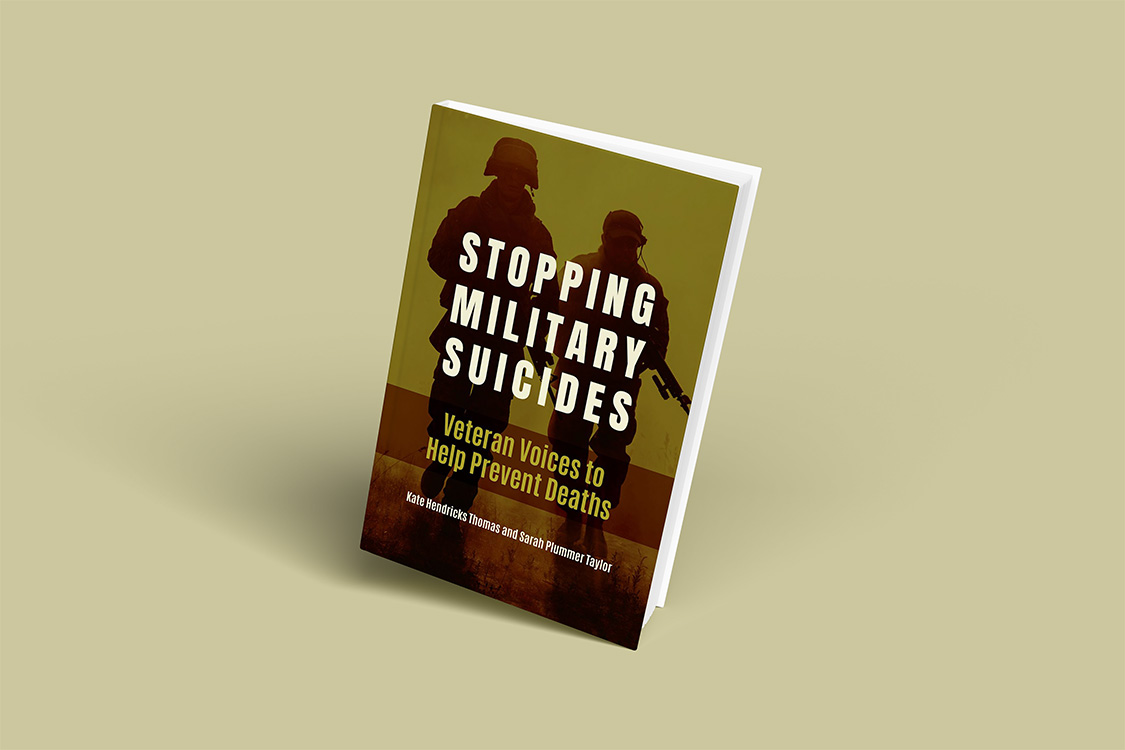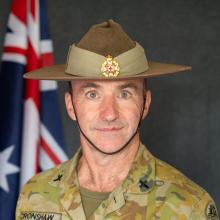Note: Content within this article regarding mental health, suicide and trauma may be distressing to some people.
Veteran suicides number 500 in Australia over the last two decades, overshadowing 41 combat deaths. This is the context of the urgent need for the Royal Commission into Defence and Veteran Suicide. Statistics suggest the scale of the issue but it gets starkly personal when we know or have supported someone who has taken their own life or thought about it.
The responsibility of care and support for those with suicidal ideation is hugely significant. Army chaplains do ASIST Pathways for Assisting Life training and use it to help colleagues ‘stay safe for now’. I’ve delivered force preservation training and workshops on suicide, and always sought to reduce stigma and urge attentiveness to our mates’ cries for help. But how can we better understand causes of suicide and develop best practice preventative support?
I read Stopping Military Suicides in one sitting. I wanted to learn from the USA context – where Thomas Suitt reports 7,057 service members died in military operations since 9/11 but suicide of active-duty members and veterans from those wars has reached 30,177! I was also attracted by learning from Veterans themselves – both writers have Marine Corps backgrounds and write transparently from their experiences of trauma.
Kate Hendricks Thomas PhD teaches Global and Community Health for George Mason University and also co-wrote Bulletproofing the Psyche and co-edited Invisible Veterans about military women transitioning to civilian life. Reflecting on her experience of confronting rape, she asks “What if I had known how to build my resilience long before I needed it?” (p.11)
Sarah Plummer Taylor is a counselor, Yoga teacher and mental health researcher. She wrote Just Roll With It: 7 Battle Tested Truths for Building a Resilient Life and Just Roll With It: Wellness Journal. On her second deployment to Iraq she looked at her pistol and yoga mat, and thankfully decided on yoga as an outlet. She realised years of extreme striving led to lack of self-care: “If you’re living life based on other people’s expectations, or running yourself ragged in the name of success, or even in the name of serving others, you’re not doing anyone any favors. You’re likely too tired to even know who your authentic self really is or what your intuition is telling you.” (p.3)
Thomas and Taylor do not focus on macro issues or the place of therapy, although they acknowledge its importance. They do not discuss suicide prevention training like ASIST. Instead they go a few steps further back. Their insights into military service and culture suggested to me three things that have potential to stop military suicides.
Firstly, what is most needed is grassroots bottom-up support from other soldiers rather than programs imposed from Defence as an organisation or imported from other agencies. Soldiers need good Mental Health services. But research shows peer support groups and veterans leading veterans is invaluable. Soldiers can benefit from individual therapy but are often hesitant to seek it. Members often need help with transition but Australia has around 5000 veteran groups so we don’t need more. What we do need are supportive networks of military mates and an understanding broader community, and a culture that supports getting help rather than pain-avoiding “sucking it up” mentality. I appreciated the importance the book placed on all soldiers owning the importance of helping one another through an issue that we are all in together.
Secondly, the authors suggest the main effort for this public health crisis should be preventative training for mental fitness of all serving members. They frame this as positive resilience and performance building training rather than post-trauma clinical treatment of certain “broken” warriors. Moreover, they discuss how resilience is built with three empirically validated foundations: social support, self-care and spiritual practices.
Social support comes from prioritising friendships and family and making the most of sport teams or other community groups. This is especially important post-service to bridge the “military-civilian chasm”.
Self-care is about intentionally regulating our nervous system. Military tempo is often intense, so soldiers need capacity to switch off with sleep, nutrition, movement, nature, massage, mindfulness, meditation, Tai Chi, yoga and/or breathwork. This reminded me Frontline Yoga and Yoga and Mindfulness from Body and Mind online has benefited me. But if not a yoga mat, what does bring you from frenetic to calm?
Resilience also grows from spiritual practices that foster hope, gratitude, compassion and positivity. I get this from Christian faith, service and prayer. But I enjoy seeing recruits reflect on different beliefs and values and how that informs their resilience and ethical behaviour.
Thirdly, depression and stress disorders need special focus as common precursors for suicidal ideation. Instead of post-traumatic trauma focus, we can consider post-traumatic growth. Just as resilience can be seen as performance-building, working through injury and trauma can identify strengths and lessons for future work. This means working through it mindfully by vulnerably sharing with supportive peers and switching off stress adaptation.
Strengths-based approaches that build resilience and lean on peer-support will more likely invite pro-active participation. These are important steps to psychologically “vaccinate” members against depression and PTSD and stop military suicides. Those who experience suicidal ideation can be helped by friends equipped with supportive frameworks like ASIST, but even better if we can help each before we get to that point. Stopping Military Suicides is an invaluable resource for anyone seeking to foster safe spaces to discuss mental fitness.
Notes:
Darren Cronshaw is a Chaplain in the Australian Army (part-time), Pastor of AuburnLife Baptist Church, and Research Coordinator and Professor of Missional Leadership for Australian College of Ministries (Sydney College of Divinity) and Stirling College (University of Divinity).
This review was originally published in Grounded Curiosity 16 Sep 2021. The book’s publication details are Kate Hendricks Thomas and Sarah Plummer Taylor,
Stopping Military Suicides: Veteran Voices to Help Prevent Deaths (Praeger 2020).
The views expressed in this article are those of the author and do not necessarily reflect the position of the Australian Army, the Department of Defence or the Australian Government.
**If you found any of this content distressing and would like to talk to someone, there are a variety of support services available to you:
Lifeline: 13 11 14
Open Arms: 1800 011 046
ADF Chaplaincy Services: 1300 467 425 and ask to speak to your area on-call Chaplain
Book Review: Stopping Military Suicides, by Kate Hendricks Thomas and Sarah Plummer Taylor © 2022 by . This work is licensed under CC BY-NC-ND![]()
![]()
![]()
![]()
Please let us know if you have discovered an issue with the content on this page.
Comments
Start the conversation by sharing your thoughts! Please login to comment. If you don't yet have an account registration is quick and easy.

